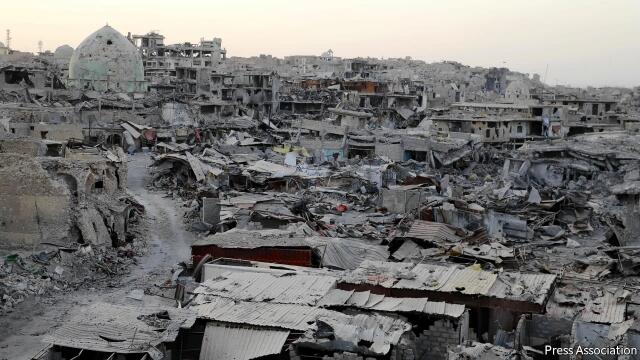THE old town of Mosul is a wasteland. So are many other cities and towns that have been mangled by the wars in Iraq and Syria. There is so much broken concrete and twisted metal in Aleppo, the Syrian city pounded by Russian and regime warplanes during the bloodiest battle of its civil war, that the World Bank reckons it will take at least six years to clear the wreckage.
In fact, the Herculean task of cleaning up the detritus of war has become one of the biggest obstacles in the region’s struggle to patch up its shattered cities. Part of the problem is that the debris contains unexploded bombs, heavy metals such as mercury and other sorts of toxic waste, all of which need to be dealt with gingerly. The other part is just that there is so much rubble.
Simply trucking the debris 10km from Mosul is expected to cost around $250m, reckons the UN Environment Programme. With few funds available, much of the rubble is just being scooped up and dumped into seasonal waterways, increasing the risk of flooding when the rains return. Some is being used to block up the tunnels that the jihadists of Islamic State (IS) dug beneath the city. The pollutants and toxins in the rubble will pose a risk for decades. “There’s just too much concrete and we barely have enough money to pay for a shovel,” says Mosul’s mayor, Abdul Sattar al-Habbo.
One solution is to recycle some of the rubble into new building materials. That would be far cheaper than carting it away in trucks and could create thousands of jobs in cities that offer few other opportunities for employment.
But that will only address a small part of the environmental catastrophe facing the region as a result of its wars. Oil wells have been bombed or set on fire, coating land, animals and humans in noxious soot. A pile of sulphur set alight by IS south of Mosul spewed as much sulphur dioxide into the atmosphere as a small volcanic eruption.
In Syria, as many as 50,000 makeshift oil refineries stain the country, leaching oil into the water and soil, and ruining the health of the children operating them. The destruction of hospitals, weapons factories, industrial plants and power stations has left behind a toxic cocktail of chemicals, heavy metals and other waste. Cleaning up the mess heaped on top of decades of pollution and environmental damage will take years, possibly decades.
Source: http://econ.st/2xHlhbw











